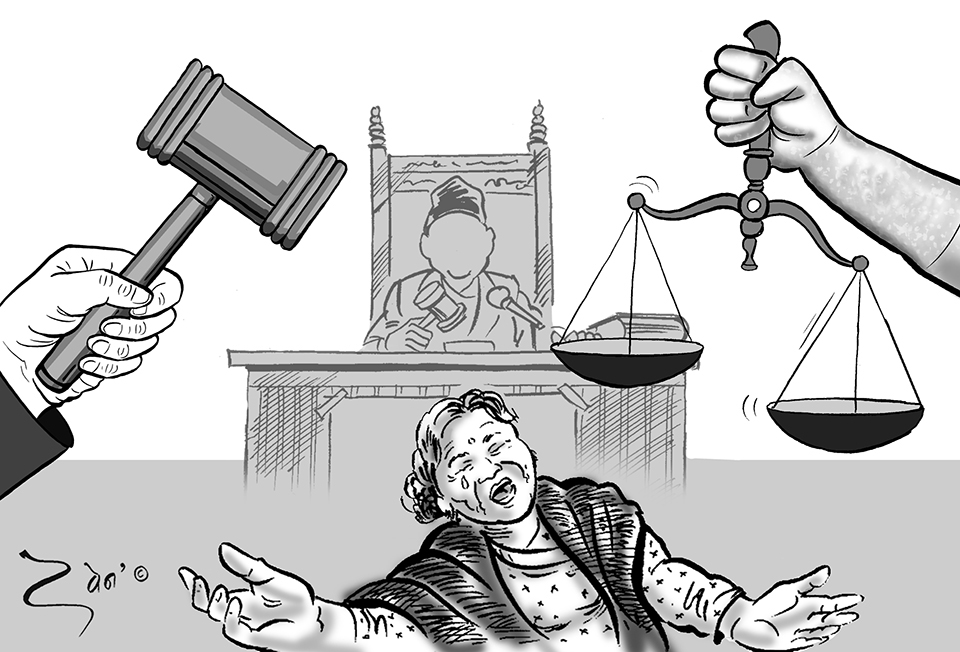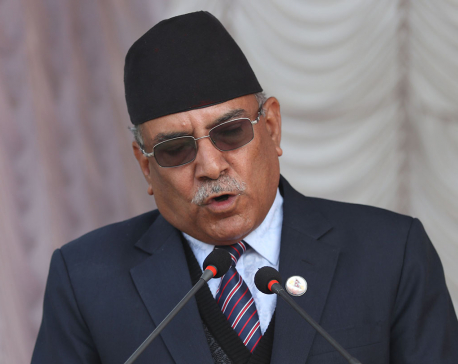
OR
Editorial
Nepal’s Flawed TJ Bill Fails Victims
Published On: March 26, 2023 07:35 AM NPT By: Republica | @RepublicaNepal

The recent move by the government to table a bill to amend the Enforced Disappearances Enquiry, Truth and Reconciliation Commission Act has raised many questions and concerns, particularly from the victims of the decade-long insurgency. The bill seems to be faulty as it fails to recognize murder as a serious violation of human rights. Moreover, the categorization of the human rights violations in the bill is problematic and against the spirit of national and international laws, including those on transitional justice. The new transitional justice (TJ) bill, like the previous one, has failed to list murder as a serious human rights violation, thereby leaving it as a crime fit for amnesty. Instead, it has listed ‘cruel murder’ or ‘murder after torture, rape, enforced disappearances’ and ‘inhumane or cruel torture’ as serious rights violations. This categorization of crimes is problematic, as it goes against the spirit of national and international laws. Human rights activists have criticized several provisions in the TJ bill, stating that there must be prosecution even in cases of sexual violence, torture, and murder, as per international law.
The victims of the decade-long Maoist insurgency protested when the bill was registered at the Federal Parliament Secretariat. But the government ignored their protest and tabled the bill in the House of Representatives early last week. It is worrying to see that the government has not taken the concerns of the victims seriously. The victims of the insurgency and human rights defenders have criticized the bill, stating that it does not consider murder as a serious violation of human rights. This is a significant concern, as murder is one of the most egregious violations of human rights, and should not be amnestied. So, the bill is a reflection of the deep-rooted culture of impunity in our political leadership. Our leaders seem to have an illusion that they are free to make any law they like, without considering the international and domestic laws. This is unacceptable.
The bill proposes the formation of a Special Court to hear conflict-era cases of atrocities. This is good move and the provision allowing appeal of the decisions of the Special Court at the Supreme Court is also positive. However, even this provision has some flaws. The provision relating to the composition of the Special Court is faulty, as it leaves room for wrongdoing. The clause “in consultation with the Judicial Council” of the provision to appoint judges to the Special Court is flawed and leaves room for wrongdoing. Instead, the bill should clearly state that judges shall be recommended by the council to ensure transparency and impartiality. The provision of “in consultation with” seems to have been kept to handpick judges.
Furthermore, the bill does not address war crimes such as the use of children as combatants or mass murder by the state and by the then Maoist rebels. This is a significant oversight that undermines the legitimacy of the transitional justice process. Some provisions in the bill are even more regressive than those in the previous bill, as victims have pointed out. For example, the new bill has ditched the provision of automatic suspension of a person who holds a public position if a case is lodged against him or her in a court. This is a step backward in the fight against impunity and undermines the credibility of the transitional justice process.
It is also worth noting that lack of political will and a proper law has been one of the many reasons the transitional justice process has been stuck even 17 years after the signing of the Comprehensive Peace Accord. The recent bill gives two years to the Truth and Reconciliation Commission (TRC) and the Commission for the Investigation of the Enforced Disappeared Persons (CIEDP) to complete the investigations. However, human rights defenders don't think two years would be enough for investigating all cases. The TRC has received 63,718 complaints, while the number of cases at the CIEDP is far lower — just 3,223.
All in all, the government's hasty push to pass the bill appears to be a mere attempt to project a facade of eagerness to conclude the transitional justice process to the world. However, it is evident that this bill is insufficient in providing any meaningful justice to the victims of the insurgency. The bill in its current form is plagued with problematic provisions that need to be removed before it can be endorsed by the House. Any attempt to provide justice through a law with faulty provisions will only further marginalize the victims. The victims' right to justice cannot be compromised by a process that is susceptible to political interference or lacks transparency and impartiality.
Therefore, it is imperative that the government takes necessary steps to ensure that the TJ process is conducted in a manner that guarantees justice to the victims who have already suffered too much.
You May Like This

Govt should not overlook its weakness: Dahal
RUPANDEHI, Jan 6: Ruling Nepal Communist Party chairperson Pushpa Kamal Dahal has said that the government should not overlook its... Read More...

Sujata Koirala charges govt with failure to deliver
KATHMANDU, Nov 22: Main opposition Nepali Congress leader Sujata Koirala today accused the incumbent government of failure to deliver to... Read More...





Just In
- MoHP cautions docs working in govt hospitals not to work in private ones
- Over 400,000 tourists visited Mustang by road last year
- 19 hydropower projects to be showcased at investment summit
- Global oil and gold prices surge as Israel retaliates against Iran
- Sajha Yatayat cancels CEO appointment process for lack of candidates
- Govt padlocks Nepal Scouts’ property illegally occupied by NC lawmaker Deepak Khadka
- FWEAN meets with President Paudel to solicit support for women entrepreneurship
- Koshi provincial assembly passes resolution motion calling for special session by majority votes






_20220508065243.jpg)






Leave A Comment